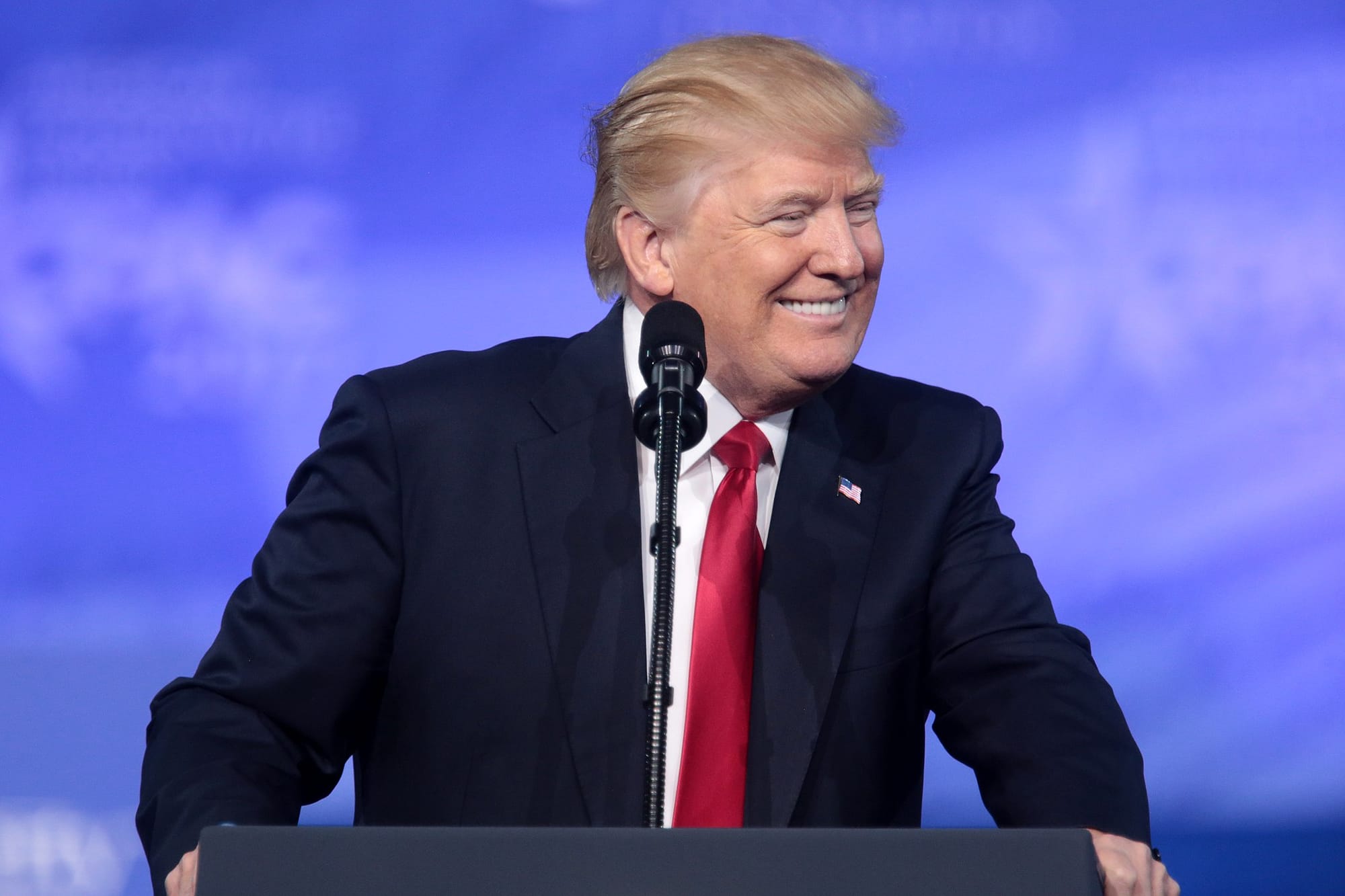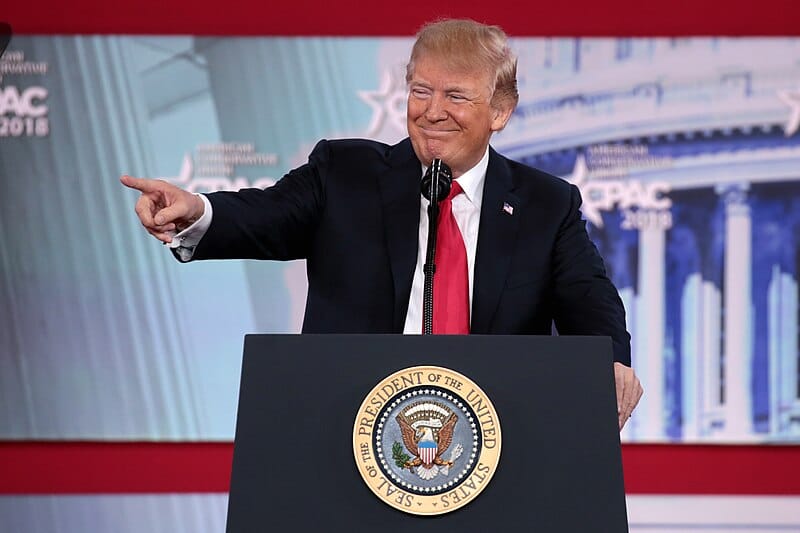How Do Cryptos Fit Into Trump's Trade Tariff Threats?

The dollar and cryptos are the biggest gainers from the so-called "Trump Trades" so far. Even the policies which threaten to weigh on stocks have boosted the greenback.
Donald Trump's trade war tactic is fast emerging as a negotiation pitch and looks similar to his first term. However, this time, the threat comes when the US central bank has fought off stubbornly high inflation.
Last week on Friday, Treasury rates fell across the board, and US equities closed the brief trading day on a positive note.
The dollar fell on speculation that the incoming president will tone down his tough trade policy. But that looks like an anomaly in a broader theme.

For the second week in a row, the S&P 500 increased by more than 1 per cent. Friday saw the index setting new all-time highs.
After eight consecutive weeks of increases, the Bloomberg Dollar Spot Index continued its weekly fall, which reached above 1 per cent.
US stocks and bonds have been boosted, but the dollar's strength has been sapped by the optimism surrounding Trump's choice for Treasury secretary, who has hinted at moderate tariffs.
According to data compiled by EPFR Global, investors poured $141 billion into US stocks in November, the greatest month so far this year, driving the S&P 500 to a 5.7 per cent gain.
In anticipation of potential rate cuts by the Federal Reserve and ongoing economic growth, a few tech giants have spearheaded a 26 per cent year-to-date rise in US stocks.
For stocks, 2024 is set to enter the Bulls' Hall of Fame, with the S&P 500 index gains ranking among the best in this century.

Moving into December, stocks will be volatile as Trump's other policies become more prominent, and the dollar is expected to hold its own.
Trump's latest salvo to the BRICS Group is a clear example. The President-elect has warned of 100% trade tariffs on the BRICS nations if the group looks ade-dollarisationon with a common trade currency framework or an alternative forex method other than the greenback.
Trump, in a post on his Truth Social network, said, "The idea that the BRICS Countries are trying to move away from the dollar while we stand by and watch is OVER."
He noted, "We require a commitment from these Countries that they will neither create a new BRICS Currency, nor back any other Currency to replace the mighty U.S. Dollar or, they will face 100% Tariffs, and should expect to say goodbye to selling into the wonderful U.S. Economy."
The President-elect added, "They can go find another 'sucker!' There is no chance that the BRICS will replace the US Dollar in International Trade, and any Country that tries should wave goodbye to America."
During his election campaign, Trump pledged he would make nations pay more to devalue their currency relative to the US dollar.
He has even threatened to impose tariffs as a means of enforcement.
The danger from Saturday became more significant as the president-elect gets ready to assume office again in January.
Regarding bilateral commerce in currencies other than the dollar, Trump and his economic advisors have debated treating friends and foes equally.
In April, Bloomberg News reported that the sanctions are being considered and that alternatives include trade tariffs, currency manipulation penalties, and export curbs.
Trump has long urged the US dollar to maintain its status as the world's reserve currency.
In a March interview with CNBC, he stated that he "would not allow countries to go off the dollar" due to its negative impact on the US.
So, for nations taking Trump's threat seriously, cryptos have become a good option.
Trump is pro-crypto and has also pledged to make the US a global hub for digital assets.
This year, Iran, the UAE, Ethiopia, and Egypt were added to the BRICS club of developing market nations, which originally consisted of Brazil, Russia, India, China, and South Africa.
During a conference last year, the topic of de-dollarisation was discussed.
As the United States spearheaded sanctions on Russia's economy in 2022, the tide turned against the dollar's hegemony.
Although the Chinese yuan and other possible dollar competitors have gained ground, this has frequently been at the price of currencies other than the greenback.
Despite their claims, the cross-border payment system and other dollar-supporting infrastructure will likely keep the US currency dominant for the foreseeable future.
Russian President Vladimir Putin, an advocate for diminishing the dollar's global influence, attended the bloc's October summit in Kazan, where evidence of this became apparent.
Since foreign versions of Mastercard and Visa are not accepted in Russia, the managers asked that participants bring cash in US dollars or euros.
Threat or tactic notwithstanding, cryptos have become a great alternative to countries looking beyond the dollar to settle their trades, especially under Trump 2.0.
De-dollarisation is a long-term process, and displacing the greenback as a reserve currency is, at best, a distant dream, especially with Trump's threat of using an alternative currency in global trade.

